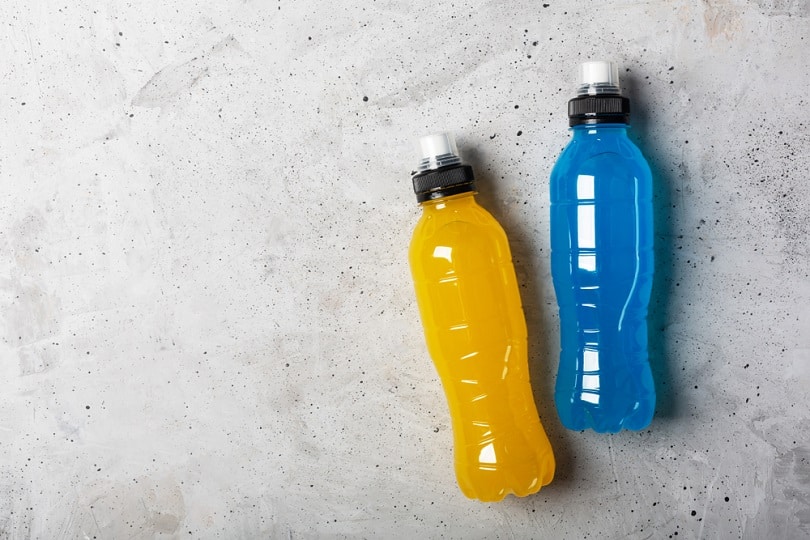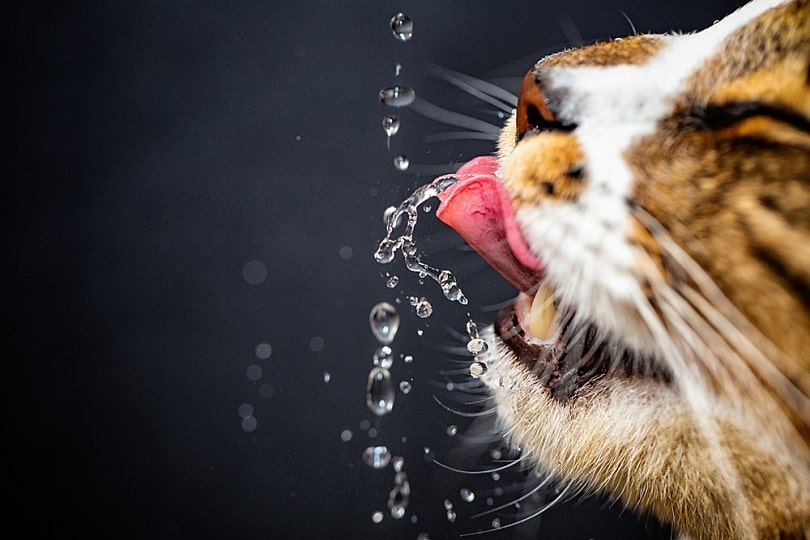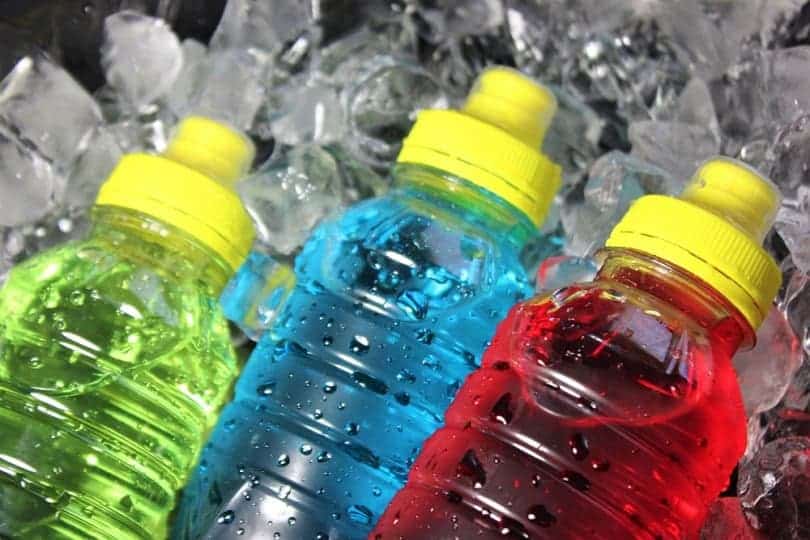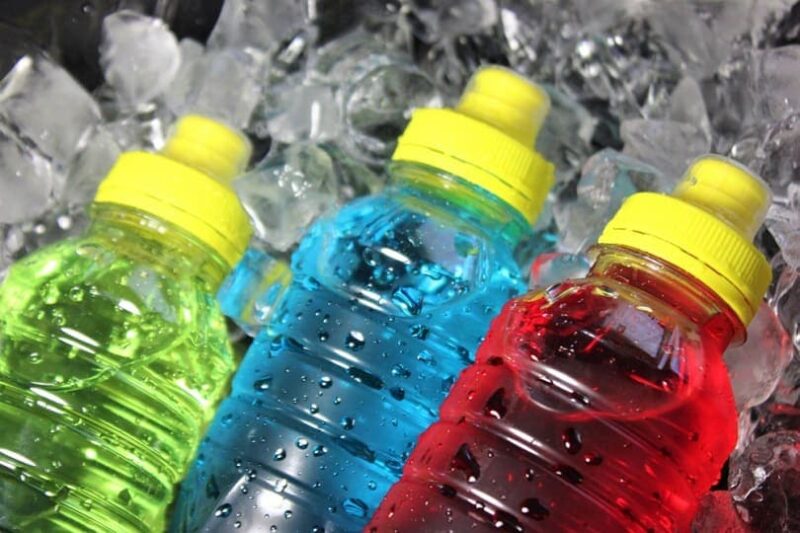Pedialyte is an oral solution consisting of mostly water with added electrolytes. It is commonly used as a treatment for dehydration in children, but is it safe for cats?
Can cats drink Pedialyte? Yes they can! If you have a small kitten or cat that is refusing to drink water or due to illness, simply cannot, Pedialyte is an effective way to get them rehydrated with important minerals and electrolytes. Pedialyte was designed for children, though, not cats, so there are important concerns to be aware of.
In this article, we’ll take a look at what exactly Pedialyte is made of, when it’s useful, and the potential health risks associated with it.
What Is Pedialyte and What Is It Used For?
Pedialyte is typically used for small children who have become mildly dehydrated due to vomiting or diarrhea. The product is used to replace depleted minerals and vitamins that are lost due to insufficient hydration. It also helps the intestines absorb water efficiently to prevent further dehydration.

Pedialyte is popular among athletes as an alternative to sports drinks due to its low sugar content, and it is also used as a hangover cure (not likely to affect your cat!).
Pedialyte is most often used orally in a liquid form, but it also comes in different flavors, in powdered form, and sometimes as freezer pops. We recommend using only unflavored liquid or powdered Pedialyte. There are several formulations of Pedialyte available, but the standard version typically contains water, dextrose, sodium chloride, potassium, and sodium citrate.
When used in animals, Pedialyte needs to be specially tailored for the specific animal, taking into account their weight, size, and age.
What Are Electrolytes?
Electrolytes are electrically charged minerals that play an essential role in muscle and nerve function and blood chemistry. They help balance the amount of water in the body. Calcium, potassium, sodium, phosphate, and magnesium are all electrolytes and help in the proper functioning of your cat’s body.
When your cat is dehydrated, their body reacts by drawing fluid out of their cells, which results in a rapid loss of electrolytes.
What Causes Dehydration in Cats?
Dehydration is characterized by an imbalance of water and minerals in your cat’s body and can be triggered by a handful of causes. For mild cases of dehydration, Pedialyte can be a perfect solution and help replace vital diminished electrolytes. But if your cat is seriously dehydrated, we recommend seeking out a veterinarian immediately because your cat might need sub-cutaneous or IV fluids to recover. Extreme dehydration can cause damage to multiple organs, and in the worst cases, could be fatal.

Vomiting and diarrhea can cause dehydration quickly, especially if your cat refuses to drink water. A fever can also cause overheating and depletion of fluids. Hot weather also presents a risk for your cat to become dehydrated, so make sure your cat always has access to fresh water and a shaded and well-ventilated area to cool down.
In certain locations, it is better to keep cats inside in an air-conditioned room during the hottest months of the year. Underlying kidney disease could also be a cause of dehydration, and in this case, daily doses of Pedialyte could be a great help. However, you should always make a complete plan with your cat’s vet, which can include a special diet and probably regular visits to the clinic.
Unfortunately, detecting dehydration in cats can be difficult. If your cat has been recently sick with vomiting or diarrhea, giving your cat a small amount of Pedialyte is a great way to make sure they get rehydrated, but if neither of these symptoms is present, you’ll need to look closer.
A dry mouth and sticky gums are common symptoms of dehydration. If you touch the inside of your cat’s mouth and their gums are dry or sticky, it could mean they are dehydrated. Additionally, gently press on their gums, and if the color does not quickly return, that is another sign they could be dehydrated.
Another way to check for dehydration is to test your cat’s skin elasticity. If you pull back the skin around your cat’s head and it moves back slowly or not at all, your cat is probably dehydrated. If you pinch and gently pull up your cat’s skin between the shoulder blades and it takes time to return back in place, the cat is dehydrated. Sunken eyes and lethargy are signs of severe dehydration, and the cat should be taken to the vet immediately.
- Loss of appetite
- Loss of energy
- Elevated heart rate
- Panting
Are There Any Potential Health Risks?
In general, Pedialyte is perfectly safe to give your cat, but there are a few risks to take into consideration. First, avoid all flavored versions of Pedialyte since they contain added sugars that may make the dehydration even worse.
As with everything, moderation is key. Some versions of Pedialyte contain zinc, and while this mineral is essential for a healthy cat, too much can cause serious health consequences and can even be fatal. This is rare, though, and your cat would need to ingest a large amount for it to be toxic.
How to Prevent Dehydration in Your Cat
Prevention is always better than the cure, and while dehydration is not always preventable, there are a few steps that you can take to help make sure your cat stays adequately hydrated.
- Make sure your cat has clean, fresh water at all times.
- Make sure the water is easily accessible to your cat.
- Monitor your cat’s water intake. If you know how much your cat typically drinks daily, you’ll be able to tell quickly when they have started drinking less.
- Do not feed your cat exclusively dry food; mix wet and dry food.
- Add bone broths without salt or other liquids to your cat’s food.

Conclusion
Pedialyte is perfectly safe to give your cats, provided that it is unflavored and given in moderation. It may be ideal for cats recovering from diarrhea and vomiting and for cats with chronic kidney disease. As with anything, moderation is key, but Pedialyte is non-toxic and will cause no harm to your feline.
See also:
- Can Cats Drink Ensure? Vet-Approved Health Benefits & Facts
- Can Cats Drink Chocolate Milk? What You Need to Know!
Featured Image Credit: Roger Brown Photography, Shutterstock











